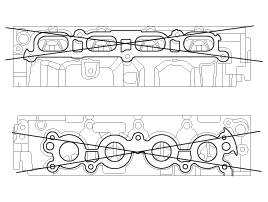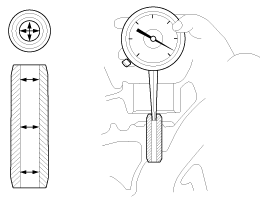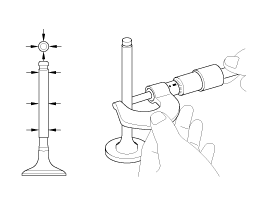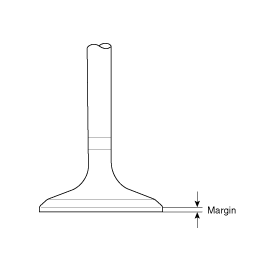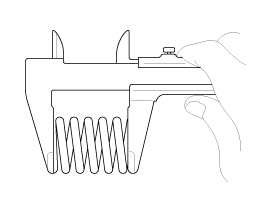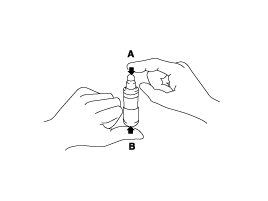Inspect for flatness.
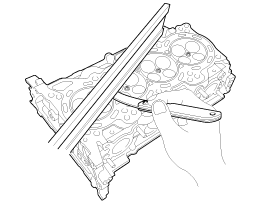
Using a precision straight edge and feeler gauge, measure the contacting surface of the cylinder block and the manifolds for warpage.
Flatness of cylinder head gasket surface:
Less than 0.05 mm (0.0020 in.) for total area
Less than 0.02 mm (0.0008 in.) for a section of 100 mm (3.9370 in.) X 100 mm (3.9370 in.)
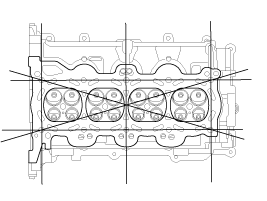
Flatness of manifold mounting surface:
Less than 0.10 mm (0.0039 in.)
